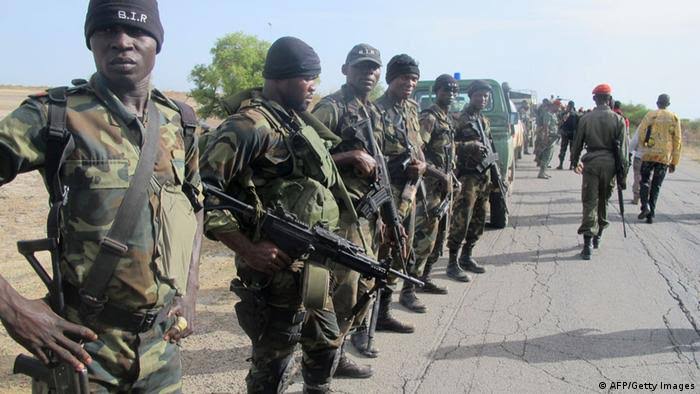Crime in Cameroon increases despite the country hosting this year’s AFCON. The soccer is event taking place in the midst of a civil war, yet it is still striving for world respect.
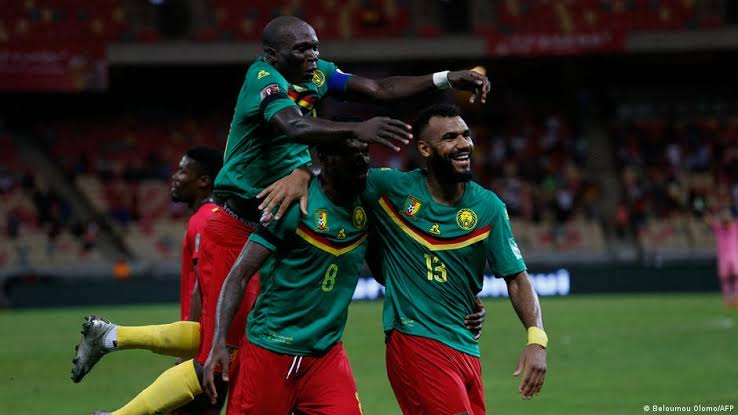
Why is AFCON so politicized?
Cameroon is hosting the Africa Cup of Nations two and a half years later than expected (AFCON).
The event was shifted to Egypt in 2019 due to concerns about Cameroon’s infrastructure preparation, and it was postponed till 2021 because to the COVID-19 epidemic.
Cameroon was slated to host the 2019 African Cup of Nations, but regional soccer officials judged the country wasn’t ready, citing unrest and a lack of infrastructure, so Egypt stepped in.
After a year of catastrophic delays, Biya’s government rushed to construct the stadiums, raising accusations that they should have been more focused on resolving the violence. AFCON kicked off Jan. 9 in the capital, Yaoundé, with tens of thousands of security personnel standing watch.
Due to the country’s ongoing crisis, which began in 2016, Cameroon’s hosting rights has been controversial.
Tensions haven’t been this high surrounding the event since rebels in Angola stormed a bus carrying Togolese players in 2010, killing three of them.
Cameroon’s Anglophones, who make up 20% of the population, feel marginalized by the Francophone majority.
President Paul Biya of Cameroon speaks solely French in public, and his government has largely ignored the demands of attorneys and teachers who staged peaceful anti-francophone protests in 2016.
Since then, the dispute has escalated, and many Anglophones are calling for the creation of an independent state known as Ambazonia.
Although separatists have launched attacks in the Cameroonian towns of Buea and Limbe, where AFCON matches are being held, Cameroon’s military claims that the games have not been disrupted.
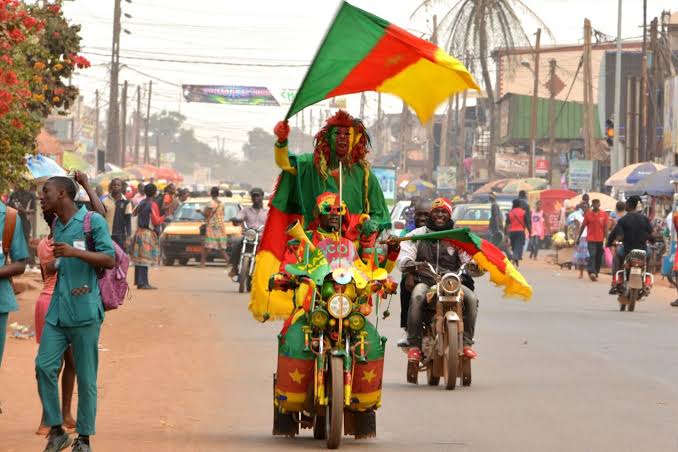
Separatists were blamed by authorities for the assassination of a Cameroonian senator last week, as well as a video circulated on social media sites showing armed men ordering 15 schoolchildren to strip naked.
Separatist fighters have vowed to carry out anti-AFCON activities in the future.
According to Human Rights Watch, violence has deprived an estimated 700,000 pupils of their education so far.
Despite the fact that 6.2 million Cameroonians require humanitarian assistance, the majority of media attention has focused on the chaotic refereeing during the Tunisia-Mali game and the AFCON’s potential to interrupt the English Premier League.
The European Club Association threatened to withhold African players over the omicron variation in a letter to the Confederation of African Football (CAF) on Dec. 10, 2021, a decision that would have gone against FIFA guidelines.
Clubs were also concerned about losing stars like Liverpool’s Mohamed Salah, who represents Egypt, and Senegal’s Sadio Mané, as well as Manchester City’s Riyad Mahrez, who represents Algeria.
After the team withheld one of its players, Ismaila Sarr, the Senegalese Football Federation condemned Watford for “disrespectful, poisonous, and discriminatory behavior.” (Before allowing Sarr to fly to Cameroon on January 4, Watford reported he was benched due to ailments.)
Despite talks, Senegal and Nigeria were forced to play without Ismala Sarr and Emmanuel Dennis, both of whom are based in England. The AFCON, which was formed in 1992, has a significantly longer history than the Premier League, which was founded in 1992.
“Has there ever been a tournament more despised than the Africa Cup of Nations?” asked Ian Wright, a former England and Arsenal striker, on social media.
AFCON has always been political, despite being the world’s second-oldest continental event. The first tournament was held in 1957, as countries began to acquire independence from colonial authority under the guise of a tournament for an independent country.
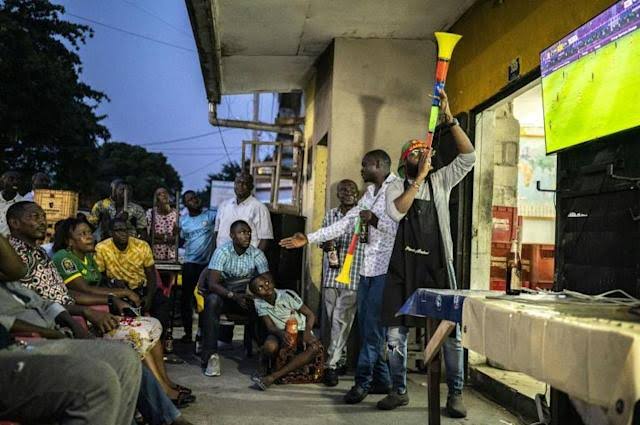
Africa’s ability to organize and maintain its own sporting institutions would be highlighted.
Egypt, Sudan, Ethiopia, and South Africa were among the founding nations, though the latter was later dropped due to its refusal to admit non-white players to the national team.
Ghana’s first president, Kwame Nkrumah, felt that soccer might usher in global respect for Africa. Ghana’s Black Stars went on to win the African Football Confederation (AFCON) in 1963, six years after independence.
South Africa, the host nation, won its first title with a multicultural post-apartheid team in 1996. CAF fought the FIFA World Cup’s decision to allocate one place to Africa and Asia until the mid-1960s.
Africa and Asia were not given distinct slots at the World Cup until 1970, after Africans boycotted the 1966 tournaments.
Competition, at least in some nations, appears to be drawing people together. “That one goal united a nation of more than 250 ethnic groupings… together,” said British Nigerian writer Aisha Rimi in the Independent after Nigeria’s stunning win against Egypt early in this year’s tournament.
“AFCON serves as a reminder that there is something positive that can emerge from the country,” she stated, at a time when Nigeria’s security is deteriorating.
Opposition to the government is being suppressed
The administration imposed restrictions on political opponents’ capacity to operate freely.
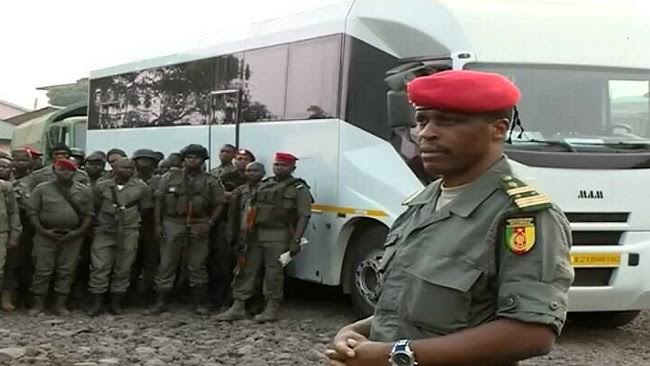
Authorities in the Far North and Littoral regions of Cameroon banned two private gatherings scheduled by the opposition Cameroon Renaissance Movement (Mouvement pour la renaissance du Cameroun, MRC) in August, citing worries over Covid-19 and public order.
After opponents declared preparations to protest the holding of regional elections scheduled for December, the authorities cited anti-terror laws and movement restrictions due to Covid-19 as a justification to restrict freedoms of association and expression.
The governors of the Littoral and Centre regions have declared an indefinite ban on public meetings and demonstrations.
Law enforcement authorities will break up unauthorized gatherings, according to the Territorial Administration Minister, who also instructed regional governors to arrest anyone organizing or leading demonstrations.
Political parties have been warned that protests might be considered “insurgency” and that unauthorized rallies across the country will be prosecuted under the anti-terror statute, according to the communication minister.
In September, 566 people were arrested for protesting, 100 of whom were freed, while another 250 were hauled before the courts. Some were charged with terrorism and rebellion, both of which are punishable by military tribunals.
The MRC’s spokesman and treasurer were detained at the State Defense Secretariat (Secrétariat d’Etat à la défense, SED) in Yaoundé for more than two weeks.
In May, while handing out protective masks and sanitizing gel in Yaoundé, police detained nine volunteers from the Survival Drive, a fundraising initiative led by opposition leader Maurice Kamto, the president of the MRC, to respond to Covid-19.
They were first charged with rebellion, but the accusations were later withdrawn.
Cameroon’s Places to Avoid
Do not travel to the following places:
- Crime and kidnapping have affected the North, Far North, Northwest, and Southwest regions, as well as parts of the East and Adamawa regions.
- Terrorism has affected the Far North Region.
- Due to armed strife in the Northwest and Southwest regions.
Do Not Travel to the North, Far North, Northwest, and Southwest Regions, as well as parts of the East and Adamawa Regions.
Within 20 kilometers of the border with the Central African Republic, there is a heightened criminal threat in the Adamawa Region north of the capital, Ngaoundere, and the East Regions.
In Cameroon, particularly in these regions, violent crime such as terrorist kidnapping and/or kidnapping for ransom, armed robbery, assault, and carjacking are severe concerns.
Do Not Travel to the Far North
Terrorists in the Far North Region may strike at any time, targeting local facilities and places visited by Westerners.
Do Not Travel to the Northwest and Southwest Regions
A separatist movement in the Northwest and Southwest regions has resulted in higher levels of violence. Separatists and government forces have engaged in armed battles, as well as other acts of violence such as kidnapping for ransom and arson.
In vast portions of both regions, ongoing war has resulted in a breakdown in order, crimes of opportunity, and a significant reduction in medical resources.

